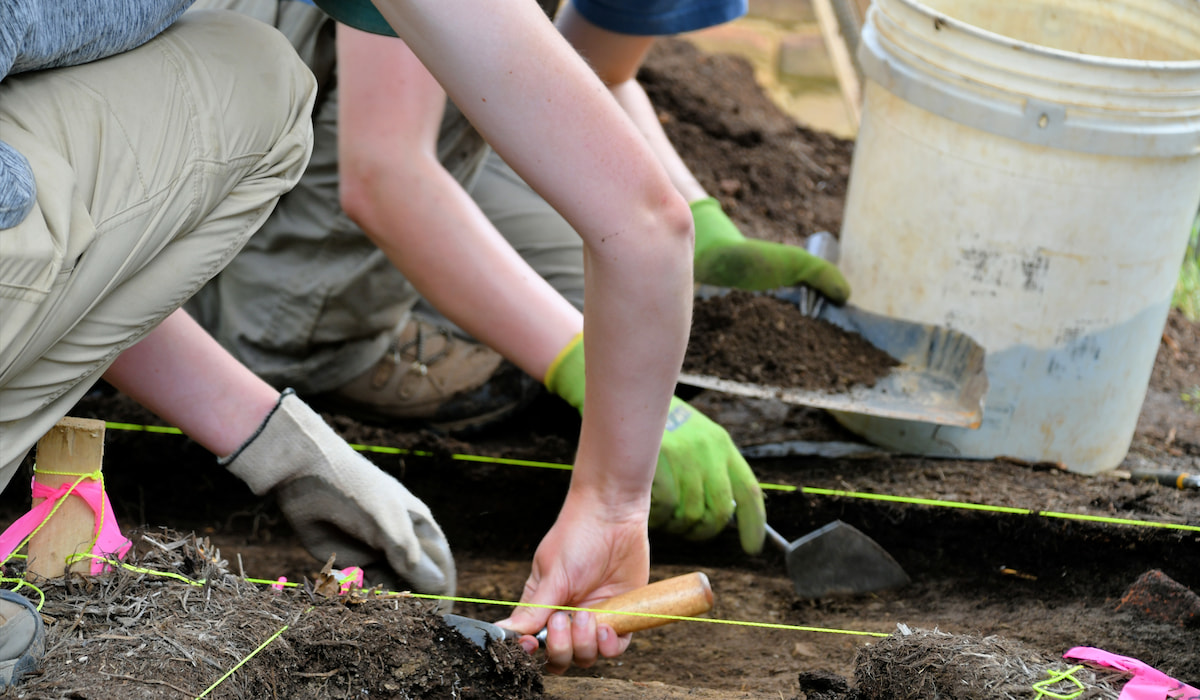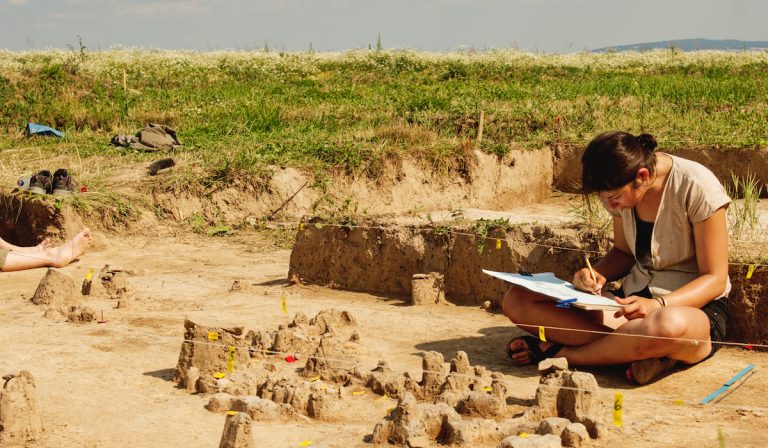What Is an Archaeological Technician?
Archaeology is an extraordinary field of study encompassing many career choices. One typical archaeological career is a field archaeologist or archaeological technician.
What is an archaeological technician, and what roles are involved?
An archaeological technician, or field archaeologist as they are also called, uses technology and data to search for artifacts and historic remains. They also mitigate the impact of excavating a site and properly store artifacts.
What are the day-to-day activities of an archaeological technician? How can you become one? Continue reading.
What Is an Archaeological Technician?
An archaeological technician is someone who brings the entire process of archaeology to life.
They use the global positioning system (GPS), other tools, and reference materials to search for potentially valuable archaeological sites.
Because of their intensive research, archaeological technicians do not just find valuable sites; they also know the best way to excavate the site for relics and artifacts. This means that an archaeological technician usually works outdoors and indoors.
Field archaeologists make an average of $19.31 an hour.
This exciting job will grow by 9% before 2028 and produce over 3,200 more jobs. This means that it is not just a juicy job. It is also very promising for lovers of archaeology.
Let us go a little further into the role of a field archaeologist.
Roles of an Archaeological Technician
Here are the major roles expected of an archaeological technician:
1. Search for Artifacts and Historical Remains

You must have heard of various sites ‘marked for excavation.’ Have you ever wondered how archaeologists or scientists figured out that such a place might hold valuable artifacts?
An archaeological technician or field archaeologist’s primary job is to search for potential sites.
They use GPS and conduct other forms of research to know where precisely (or vaguely) an artifact could be. They will usually travel to the location and ask a lot of questions as well.
2. Identify Artifacts and Historical Remains
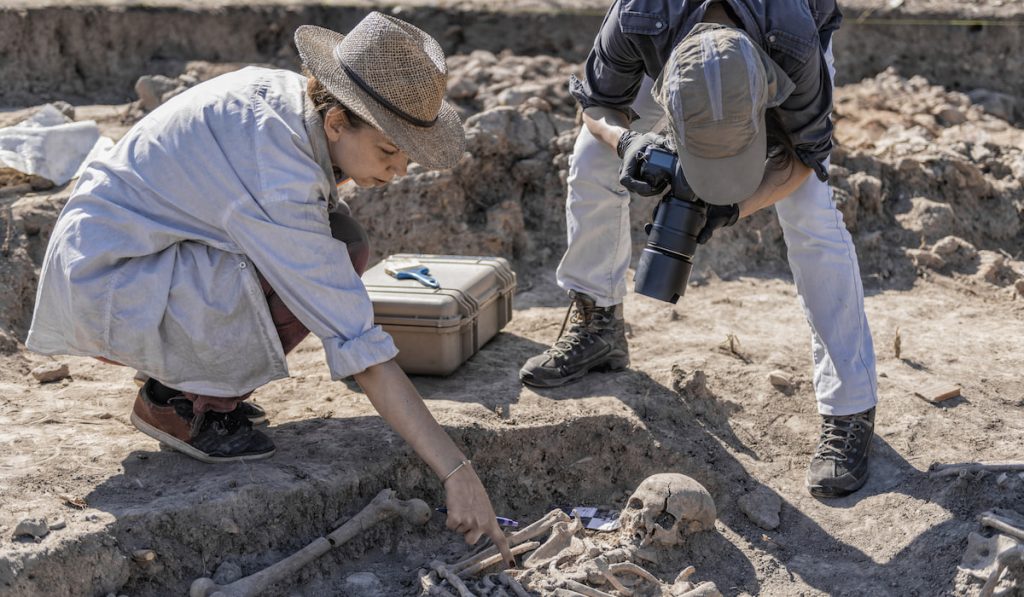
Archaeologists and other stakeholders know that if they excavate a site, they will find valuable artifacts.
The next question is how do they know what artifacts they will find, and what is the significance of what they are searching for?
Of course, you do not expect archaeologists to excavate a site blindly. They surely know what they are looking for. Even if they find other valuable items along the way, they still have a target.
An archaeological technician identifies artifacts, so excavation expeditions surely need one on site.
3. Connect People, Data, and Artifacts Together
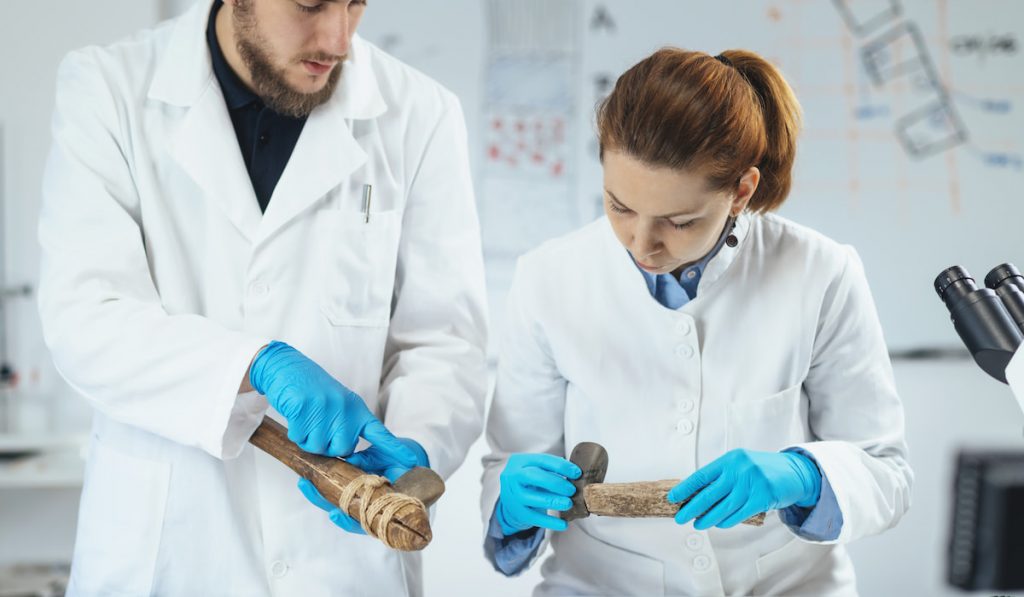
Connection is a significant role of an archaeological technician. They serve as the union between people, data, and artifacts.
How?
Field archaeologists collect and analyze a lot of data to find where artifacts are. A part of the data they collect is the survey they get from people.
After pinpointing a potential site, a field archaeologist will report to the project directors. By doing so, a field archaeologist has successfully collected data from people (and extra research) to find artifacts and report back to people (their project directors).
4. Assists in Properly Caring For and Handling Artifacts
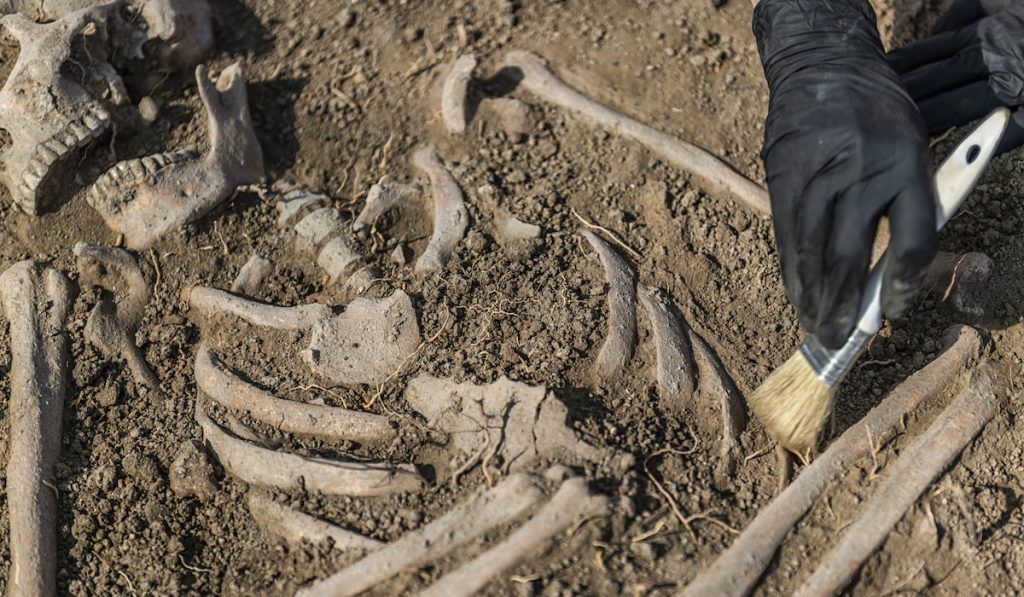
At the sites, archaeologists will find various artifacts. How they handle the artifacts matters a lot because if they do not handle them correctly, the artifacts can deteriorate quickly.
Aside from the integrity of the artifacts, the way archaeologists handle them can also affect their sentimental or spiritual value.
An archaeological technician’s job is to research the provenance and care of artifacts on a site.
How did the ancient civilization keep their belongings? Can we mimic it today? What material is this artifact made with, and what is the best way to store it?
A field archaeologist will answer these questions after doing intensive research.
5. Take Part in Site Mitigation
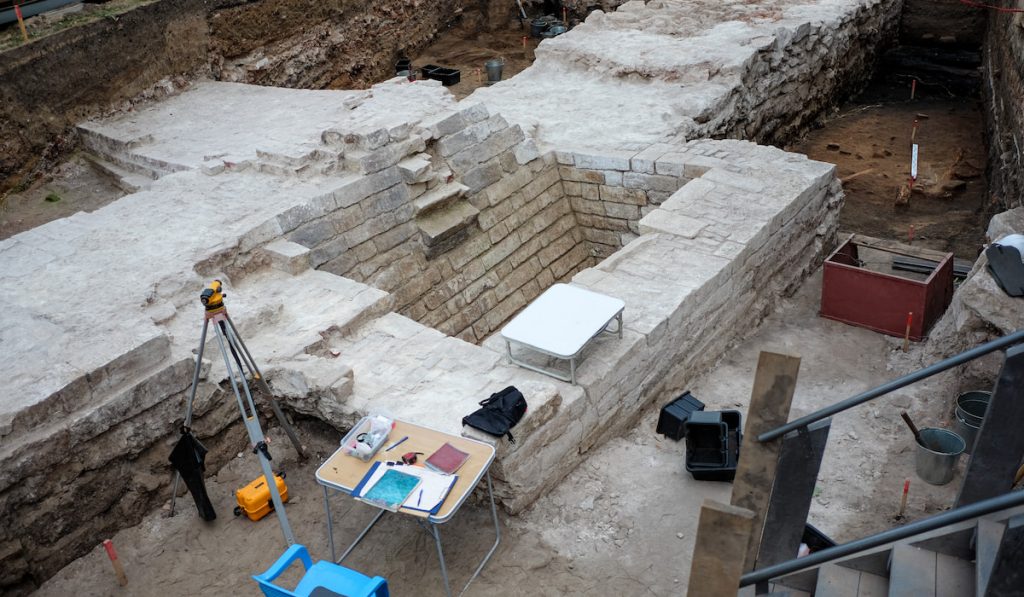
This is similar to the previous point, but our interest is in the site in this case.
What is the best way to excavate this site? Do we need to unearth every part, or is there a particular region to search? Also, how can we bring this site back to normal after excavation?
A field archaeologist is genuinely an all-in-one job for archaeologists. It is also exciting as they get to be among the first persons on Earth to know of and even see an ancient relic.
Now you have the idea behind the job of a field archaeologist. Let us discuss some everyday activities of a field archaeologist.
Everyday (Practical) Activities of an Archaeological Technician
Here are some day-to-day activities of an archaeological technician:
- Conducting Interviews: As a field archaeologist, you’ll need to interview as many people as possible. Finding people with an excellent oral history of a place can save you from spending as much time in history books.
- Photography and Sketching: A fun part of the job is that you must visit the potential site and produce clear aerial pictures. You may also need to sketch.
- Searching for Data and Valuable Resources: You will likely find yourself constantly searching for data. You can get data from interviews as well as various technology and software.
- Indicating and Mapping a Site of Interest: You will need to indicate where the site is and where artifacts are found within it.
- Always Reading: You will be a constant reader. You will read many historical books, maps, legends, etc.
- Collecting Soil and Water Samples for Analysis: To be sure that there are remains of an ancient world in a site, you may conduct various types of analyses in a science laboratory.
- Reporting Findings to a Project Director: When you get your findings, you will report to your project director.
Sounds like the job of an archaeological technician is fun, right?
Would you like to become one? If yes, continue reading to find out how.
How to Become an Archaeological Technician
Note that you must take special training programs at an archaeological institute before becoming an archaeological technician. These programs will introduce you to the field while connecting your previous knowledge (in similar or different careers) with this new field.
Before applying for these programs, however, make sure that you have each of the following:
1. A Bachelor’s Degree
Of course, the first thing you need before getting your first job as a field archaeologist is a bachelor’s degree. You can get a degree in anthropology, archaeology, or evolutionary biology.
Just make sure you study something that connects with archaeology or improves your knowledge about the Earth (geology) and human settlement or migration. It would be super helpful to have a master’s degree as well.
2. A Deep Understanding of Diverse Cultures
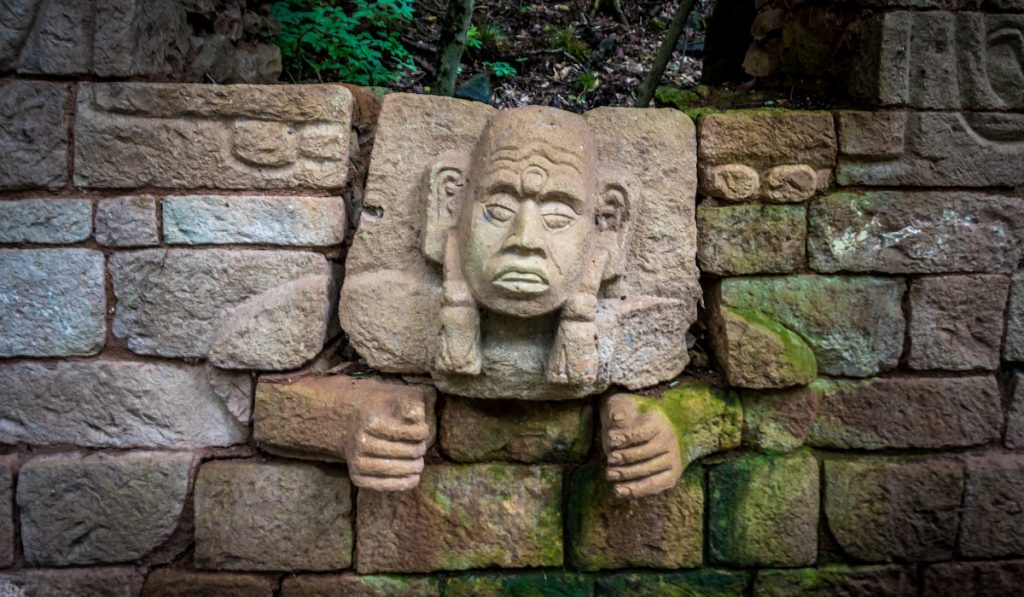
This is going to be a significant part of your research. Aside from learning the local language where a site is situated, you need to understand the sentiments of the inhabitants: what they love and what they do not.
If the present dwellers in the community are descendants of the ancient people who lived there, you must be intentional in ensuring that you understand their culture.
Learn necessary skills and values to manage the cultural resources. Learn how to store an artifact so that the people will still have value for it and not get upset by the way you handle the artifacts.
3. Physical Strength and Stamina
Even though a field archaeologist does a lot of research, you still need physical strength as the job is also on-site.
Walking and working on an excavation site needs stamina and good eyesight. This also means that you must learn to always think about safety first.
4. Analytical Skills
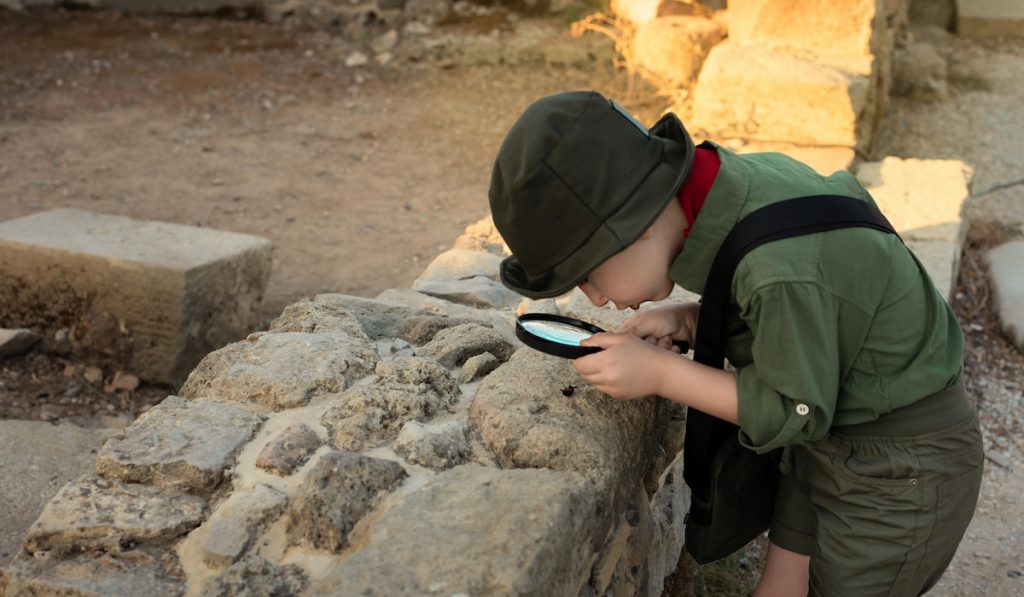
You need to conduct proper analysis as a field technician. You need to analyze data with various software and technology to know the location of artifacts.
For example, you may find out that everyone you ask a question of will not give you the same answer. While you want to go with the majority or average opinion, you need to know when to consider the contrasting responses of others.
5. Communication Skills
How do you ask people questions? How do you report your findings back to the project director?
The way you communicate matters.
Learn proper communication skills to be a good field archaeologist. That way, you and everyone else will be on the same page at the end of the day.
Other Archaeology-Related Career Options
You might be thrilled with the job of a field archaeologist. Check out these archaeology-related jobs as well:

- Archaeologist (ethnic, classical, historical, etc.)
- Lab Technician
- Museum Education Officer
- Curator
- Conservator
- Underwater Archaeologist
- Bio-archaeologist
Which one looks fun and promising?
Final Thoughts
A field archaeologist does many things, but the job can be summed up as searching for artifacts with data collection, analysis, and reporting your findings to your project director. It is a fun and promising job, so you should consider being one if your interests lie in delving into the past.
Resources
- https://www.zippia.com/archaeological-technician-jobs/
- http://www.succinctresearch.com/being-an-archaeological-field-technician-the-truth/
- https://www.ziprecruiter.com/Career/Archaeological-Technician/What-Is-How-to-Become
- https://www.careermatch.com/job-prep/career-insights/profiles/archaeological-technician/
- https://innovativeapprenticeship.org/oc_st_post/archaeological-technician/

